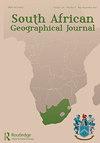解释南非潜在新兴农民对土地规模的需求:这对土地再分配政策意味着什么?
IF 1.4
4区 社会学
Q3 GEOGRAPHY
引用次数: 1
摘要
南非的土地再分配停滞不前,近年来公民和政治家的挫折感都有所增加。在众多建议中,由总统任命的土地改革和农业咨询小组(Advisory Panel on Land Reform and Agriculture)建议进行研究,以更好地了解土地再分配的受益者。本文从三个省份随机抽取了469名潜在新兴农民作为样本,试图了解影响以商业为导向的小农土地规模需求的因素,他们是土地再分配的主要受益者。现有的研究报告显示,小农对土地的需求很小,尽管1970年的《土地分割法》禁止对农田进行再分割,但土地改革农场应该再分割以满足这一需求。这一反复的要求意味着,到目前为止,政府在细分土地改革农场方面做得很少。本研究的普通最小二乘回归结果表明,在统计上解释土地改革潜在受益者的土地需求的主要是社会经济变量,其次是“目前拥有的耕地”和“风险态度”。考虑到农场细分的争论,本研究的结果证实了细分农场的论点,因为小农需要满足他们的工作能力和接受相关风险的意愿的土地规模。本文章由计算机程序翻译,如有差异,请以英文原文为准。
Explaining land size demand among potential emerging farmers in South Africa: what does it mean for land redistribution policy?
ABSTRACT The South African land redistribution is stalling, and frustration in both citizens and politicians has gained momentum in recent years. Among its numerous recommendations, the Advisory Panel on Land Reform and Agriculture, appointed by the presidency to ease the frustration, has recommended research to better understand the beneficiaries of land redistribution. Using a sample of 469 potential emerging farmers randomly selected and surveyed from three provinces, this article endeavours to understand factors affecting land size demand of commercial-oriented smallholders, who are the prime beneficiaries of land redistribution. Existing studies report a small land size demand from smallholders and have advocated that land reform farms should be subdivided to meet this demand despite the Land Subdivision Act of 1970, which prohibits subdivision of farmland. This repeated request implies that the government has done little so far to subdivide land reform farms. Results from the ordinary least squares regression of the present study show that mostly socio-economic variables, followed by ‘currently owned arable land’ and ‘risk attitude’, statistically explain land demand of potential land reform beneficiaries. Considering the farm subdivision debate, the results of this study substantiate the argument of subdividing farms because smallholders demand a land size that meets their working capabilities and their willingness to accept the associated risk.
求助全文
通过发布文献求助,成功后即可免费获取论文全文。
去求助
来源期刊

South African Geographical Journal
GEOGRAPHY-
CiteScore
3.40
自引率
7.10%
发文量
25
期刊介绍:
The South African Geographical Journal was founded in 1917 and is the flagship journal of the Society of South African Geographers. The journal aims at using southern Africa as a region from, and through, which to communicate geographic knowledge and to engage with issues and themes relevant to the discipline. The journal is a forum for papers of a high academic quality and welcomes papers dealing with philosophical and methodological issues and topics of an international scope that are significant for the region and the African continent, including: Climate change Environmental studies Development Governance and policy Physical and urban Geography Human Geography Sustainability Tourism GIS and remote sensing
 求助内容:
求助内容: 应助结果提醒方式:
应助结果提醒方式:


